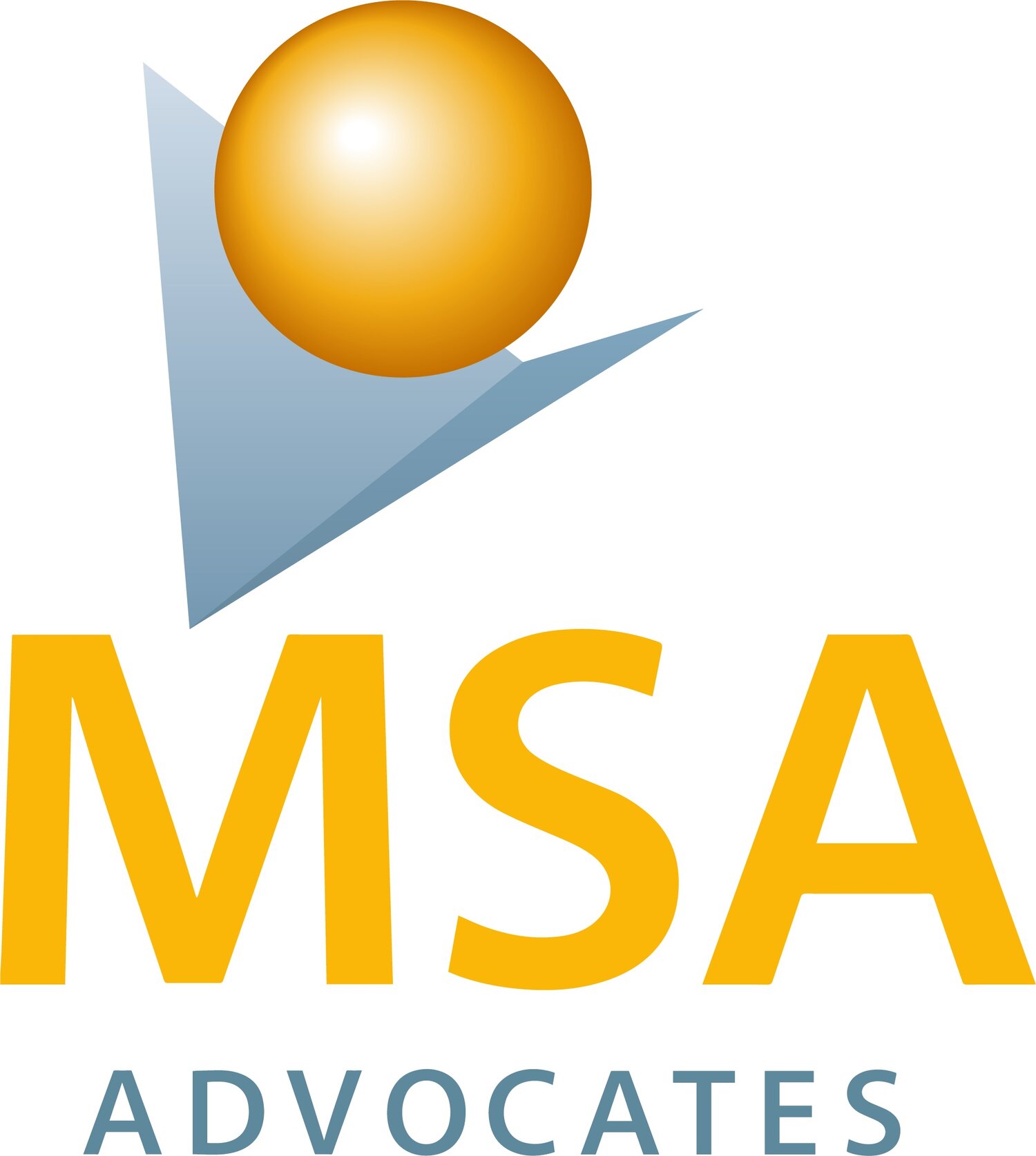
Workers’ Compensation Medicare Set Asides
A Workers’ Compensation Medicare Set Aside Arrangement (WCMSA) is an amount of money set aside that allocates for future medical services related to the workers’ compensation injury, illness, or disease. When a claimant settles his/her workers’ compensation claim, these funds must be exhausted before Medicare will pay for future medical treatment related to the workers’ compensation injury, illness, or disease.
All parties in a workers’ compensation case have significant responsibilities under the Medicare Secondary Payer (MSP) statute to protect Medicare’s interests. The recommended method to protect Medicare’s interests is a Workers’ Compensation Medicare Set Aside (WCMSA). Currently, there are no statutory or regulatory provisions requiring that a WCMSA proposal be completed and/or submitted to CMS for review. However, the WCMSA proposal is CMS/Medicare’s preferred method (so long as the “Rules” promulgated for this process are followed) for protecting their interest when a settlement includes future medical expenses.
A WCMSA is recommended for review by CMS/Medicare when it meets the following criteria:
The claimant is a Medicare beneficiary
The claimant is a Medicare beneficiary and the total settlement amount is greater than $25,000.00; or
The claimant has a reasonable expectation of Medicare enrollment within 30 months of the settlement date and the anticipated total settlement amount for future medical expenses and disability/lost wages over the life or duration of the settlement agreement is expected to be greater than $250,000.00.
Please note that the thresholds are “working thresholds” and not “safe harbor thresholds” for the review and approval of a Medicare Set Aside by CMS/Medicare. Therefore, although the claim may not meet the threshold for review, CMS/Medicare’s interests must still be protected in the settlement. Call MSA Advocates, Inc. for more details at 315-472-7965.
Why is the Medicare Set Aside needed?
Medicare Regulations at 42 CFR 411.46 states that:
“If a lump-sum compensation award stipulates that the amount paid is intended to compensate the individual for all future medical expenses required because of the work-related injury or disease, Medicare payments for such services are excluded until medical expenses related to the injury or disease equal the amount of the lump-sum payment”.
In addition, the Medicare manuals § 3407.8 and § 2370.8 states:
“When a beneficiary accepts a lump sum payment that represents a commutation of all future medical expenses and disability benefits, and the lump sum amount is reasonable considering the future medical services that can be anticipated for the condition, Medicare does not pay for any items or services directly related to the injury or illness for which the commutation lump sum is made until the beneficiary presents medical bills related to the injury equal to the total amount of the lump-sum settlement allocated to medical treatment.”
A Workers’ Compensation Medicare Set Aside Arrangement (WCMSA) is an amount of money set aside that allocates for future medical services related to the workers’ compensation injury, illness, or disease. When a claimant settles his/her workers’ compensation claim, these funds must be exhausted before Medicare will pay for future medical treatment related to the workers’ compensation injury, illness, or disease.
All parties in a workers’ compensation case have significant responsibilities under the Medicare Secondary Payer (MSP) statute to protect Medicare’s interests. The recommended method to protect Medicare’s interests is a Workers’ Compensation Medicare Set Aside (WCMSA). Currently, there are no statutory or regulatory provisions requiring that a WCMSA proposal be completed and/or submitted to CMS for review. However, the WCMSA proposal is CMS/Medicare’s preferred method (so long as the “Rules” promulgated for this process are followed) for protecting their interest when a settlement includes future medical expenses.
The Department of Health and Human Services has provided the following criteria and if the Workers’ Compensation file falls under one or more of the following qualifying criteria, a Medicare set aside should be considered:
When the claimant/beneficiary is clearly a Medicare beneficiary no matter the amount of settlement.
Commutation vs. Compromises: Medicare/CMS defines commutations and compromises as follows: Commutation: WC settlements that are intended to compensate the claimant/beneficiary for future medical expenses. Compromises: WC settlements intended to compensate the claimant/beneficiary for current or past medical expenses. (Most Section 32’s are Commutations) Medicare/CMS interests must be considered where the settlement involves future medicals and the claimant/beneficiary is eligible for Medicare. A settlement is considered a commutation regardless of liability. The distinction rests solely on whether the settlement involves future medical exposure.
If the claimant/beneficiary is not yet eligible for Medicare but there is a reasonable expectation of the Medicare within 30 months AND the future medical AND indemnity being offered in the settlement exceeds $250,000.00.
The claimant/beneficiary is 62 years and six months old or older (may be eligible for Medicare based upon age (65) within 30 months) AND the future medical AND indemnity being offered in the settlement exceeds $250,000.00.
The claimant/beneficiary has an End-Stage Renal Disease (ESRD) that does not yet qualify for Medicare based upon ESRD.
Workers’ compensation settlements with full settlement values of $25,000.00 or less do not require written approval from CMS/Medicare for the Medicare set aside completed for the settlement of the claim. However, CMS/Medicare Rules require that their interests still are protected and the same outlined in the Settlement Agreement and Release for the workers’ compensation settlement. These thresholds are “working” thresholds and not “safe harbor” thresholds; and, therefore, do not disqualify a claim from the Medicare Set Aside process if the claim qualifies under the threshold. Please see CMS/Medicare’s Memo of April 25, 2006, for details. This memo and other memos addressing the CMS/Medicare Rules for Medicare set-asides can be found on CMS/Medicare’s website: http://www.cms.hhs.gov/MedicareSecondPayerandYou/.
If there are any outstanding liens that may have been generated by Medicare’s conditional payment(s) of compensable medical bills, these conditional payments (liens) must be identified and resolved with Medicare. The liens may be resolved after settlement.
The current CMS/Medicare Rules allow for the Medicare set aside allocation to be computed using the State’s workers’ compensation medical fee schedule or usual and customary medical billing rates. The State’s workers’ compensation fee schedule may reduce the amount of Medicare allocation. However, it is important to note that the recent rules of CMS/Medicare indicate any Medicare-covered treatment for the work injury and/or illness in excess of the fee schedule may not be paid out of the Medicare set aside. The workers’ compensation release should outline what schedule was used to compute the Medicare set aside and the claimant fully understands this process.
The Medicare set aside can be self-administered by the claimant/beneficiary. Language regarding the Medicare Set Aside and the self-administration of the Medicare Set Aside account is required by CMS/Medicare for the Workers’ Compensation Release. In addition, if a Medicare custodial account is requested by the claimant/beneficiary or attorney, MSA Advocates, Inc. can assist the parties in setting up the same. Upon request, MSA Advocates, Inc. will provide language that has been approved by CMS/Medicare for the Workers’ Compensation Release.
An annuity may be used to fund the Medicare Set Aside providing more of the settlement money to be used for indemnity and a “deductible program” for the claimant/beneficiary. Contact MSA Advocates, Inc. for information regarding the use of structures to fund the Medicare set aside.
Simply assign the file and MSA Advocates, Inc. will take care of the details.
MSA Advocates Medicare Set Aside Services Include:
Confirmation of Medicare Status
Lien Search and Negotiation
Rated Age
Medicare Allocation Opinion
Structured Settlement Proposal (See 'Structured Settlements' below for more information)
CMS/Medicare Language for Section 32 Agreement or WC Release
Written Medicare/CMS Approval of Medicare Set Aside
Longshoreman Workers' Compensation Claims
Call MSA Advocates, Inc. for more detail at 315-472-7965
Workers’ Compensation Q&A
Q: When does a Medicare Set Aside need to be completed?
A: When the claimant is a Medicare beneficiary or is in the “waiting period” for Medicare benefits, defined by CMS/Medicare’s “Rules”
Q: What defines a person in the “Waiting period” defined by CMS/Medicare’s “Rules”?
A: When a claimant has a reasonable expectation of Medicare enrollment within 30 months if any of the following apply:
The claimant has applied for Social Security Disability Benefits
The claimant has been denied Social Security Disability Benefits but anticipates appealing that decision
The claimant is in the process of appealing and/or re-filling for Social Security Disability benefits
The claimant is 62 years and 6 months
The claimant has End-Stage Renal Disease (ESRD) condition but does not yet qualify for Medicare based upon ERSD
Q: Does the Medicare Set Aside need to be submitted to CMS/Medicare for written approval?
A: Based on CMS/Medicare’s user guide and “Rules” there are “safe harbor thresholds” and “working thresholds”. If the case meets the “working threshold” (the claimant is a Medicare beneficiary and the settlement agreement is greater than $25,000.00. Or the claimant is in the “Waiting period” for Medicare benefits and the settlement agreement is greater than $250,000.00). Then MSA Advocates strongly suggests getting written approval for the Medicare Set Aside when the case meets these criteria.
Q: Is there a process whereby the spend-down of the Medicare Set Aside can be tracked and monitored by CMS/Medicare and the claimant?
A: Yes, CMS/Medicare now allows claimants to administer the spend-down of their Medicare Set Aside online, making the process very easy. Call MSA Advocates, Inc. for information.
If you should have any questions with regard to the above questions/answers, please call our office and discuss with our knowledgeable staff at 315-472-7965.
Protecting your interests and knowledge is our strength
MSA Advocates, Inc.'s goal is to provide our clients an overall detailed understanding of the Medicare Secondary Payer (MSP) Statute and CMS/Medicare's Rules as they apply to this Statute, without bias. Our clients will have the understanding and knowledge to make sound business decisions relative to the MSP process.
